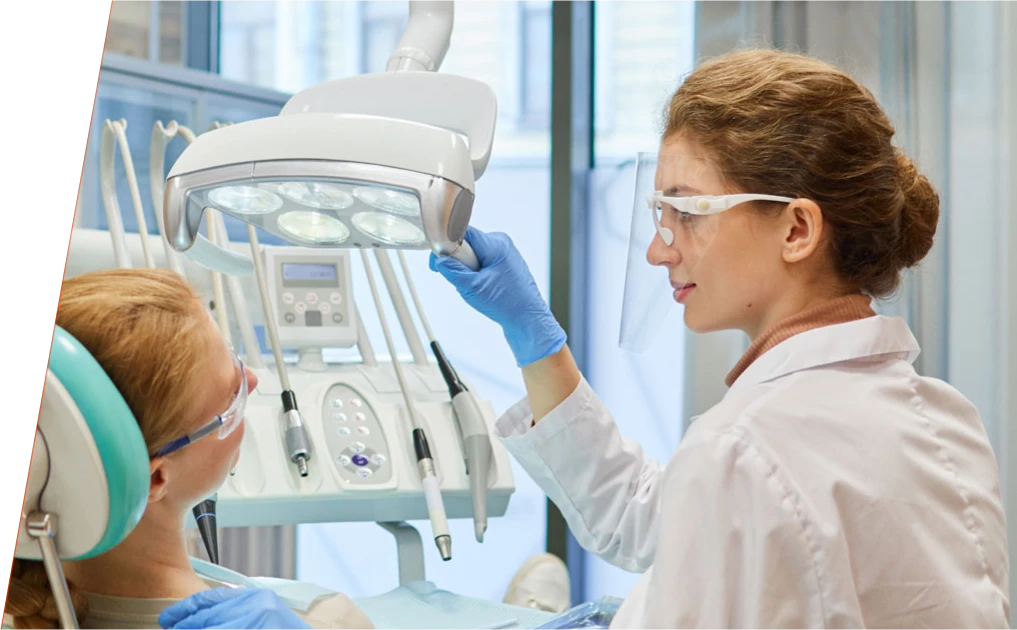Why is wisdom teeth recovery so challenging?
Getting your wisdom teeth removed is a common procedure, but the recovery process can feel uncomfortable and slow. You might be dealing with swelling, pain, jaw stiffness, or difficulty eating, making it crucial to take the right steps to speed up healing.
The good news? There are effective ways to recover faster! Whether it’s choosing the right foods, reducing swelling, or preventing complications, following proper post-surgery care can make all the difference.
In this guide, we’ll explain how to speed up wisdom teeth recovery so you can heal quickly and return to normal life.
1. Essential Post-Surgery Care for Faster Healing
The first few days after surgery are critical for proper healing. Follow these steps to set yourself up for a smooth recovery.
Follow Your Surgeon’s Instructions
- Always adhere to your oral surgeon’s aftercare guidelines.
- Take prescribed pain medication and antibiotics as directed.
- Avoid strenuous activity for at least 48 hours.
Protect the Blood Clots
Blood clots form in the extraction site and play a vital role in healing. Disrupting them can lead to dry sockets, a painful complication that delays recovery.
- Do not spit forcefully, use straws, or smoke for at least a week.
- Keep your mouth gently rinsed with a saltwater solution to prevent infection.
2. Managing Pain After Wisdom Teeth Removal
Postoperative pain is expected, but managing it effectively can make recovery much easier.
Use Pain Medication Wisely
- Take ibuprofen or naproxen to reduce pain and inflammation.
- If prescribed, take your sedative or opioid medication responsibly.
- Try natural pain relief methods like clove oil or tea bags (which contain clot-promoting tannins).
Apply Ice Packs to Reduce Discomfort
- Use cold compresses for 24-48 hours to minimise swelling and numb pain.
- Apply ice packs in 15-20 minute intervals with a break in between.
3. How to Reduce Swelling After Wisdom Teeth Surgery
Swelling and cheek bruising are common but can be managed effectively.
Ice, Ice, Ice!
- Apply ice packs to the affected area during the first 24 hours.
- Avoid excessive heat, which can increase swelling.
Switch to Warm Compresses After 48 Hours
- After the initial swelling subsides, use warm compresses to increase blood flow and speed healing.
Stay Upright While Resting
- Keep your head elevated with pillows to prevent excess swelling.
4. The Best Diet for a Fast Recovery
Eating the wrong foods can aggravate your wounds and slow down healing. Stick to a soft food diet for at least a week.
Foods to Eat After Wisdom Teeth Removal
- Liquid foods: Broths, smoothies, protein shakes.
- Soft foods: Mashed potatoes, scrambled eggs, yogurt, applesauce.
- Hearty but safe options: Soft pasta, oatmeal, soft fish.
Foods to Avoid
- Hard, crunchy, or chewy foods (chips, nuts, popcorn).
- Sticky candy that can disrupt healing.
- Spicy and acidic foods that cause irritation.
Stay Hydrated
- Drink plenty of water, but avoid using straws to prevent dry sockets.
- Skip alcohol and caffeine, as they can slow healing.
5. Preventing Infection and Complications
Keeping your extraction site clean and free from bacteria is essential to avoid infections that can delay healing and cause unnecessary pain.
Keep Your Mouth Clean (But Gently)
- Do not brush directly over extraction sites for the first 48 hours.
- After 24 hours, gently rinse your mouth with salt water.
- Use antiseptic mouth rinse as recommended by your dentist.
Watch for Signs of Infection
If you notice the following symptoms, contact your dentist immediately:
- Persistent pain and swelling beyond 4-5 days.
- Pus or foul taste in your mouth.
- Fever or chills (could indicate an infection).
6. Wisdom Teeth Recovery Timeline: What to Expect?
Healing time varies, but here’s a general wisdom teeth recovery timeline:
Day 1-2
- Swelling and bleeding peak but begin to improve.
- Follow strict post-op care, including medication and rest.
Day 3-4
- Pain and discomfort start subsiding, but you may still feel sore.
- Avoid heavy activity and maintain a soft diet.
Week 1
- Most people return to work or school within 5-7 days.
- Stitches may need removal if non-dissolvable.
Weeks 2-3
- The swelling completely subsides.
- Most patients resume normal eating with caution.
One Month+
- Full recovery occurs between 4-6 weeks.
7. When Can You Resume Normal Activities?
- Avoid high-intensity sports for at least a week.
- Avoid contact sports for 2-3 weeks to prevent injury.
- Returning to work/school? After 3-5 days, depending on recovery speed.
Wrapping Up: Heal Faster & Get Back to Normal Life
Recovering from wisdom teeth surgery doesn’t have to be a long, painful process.
By following these expert-backed tips on how to speed up wisdom teeth recovery, you can reduce pain, prevent complications, and heal faster.
👉 Need personalised dental advice? Visit your trusted oral surgeon today!
FAQs
1. How to make a wisdom tooth hole close faster?
Keep the area clean, avoid irritating foods, and don’t disrupt the clot to allow for faster healing.
2. Why is day 3 the worst after wisdom teeth removal?
Pain and swelling peak on day 3 as the body’s inflammatory response reaches its highest point.
3. Do top or bottom wisdom teeth heal faster?
Top wisdom teeth generally heal faster because lower extractions involve more muscle and bone disruption.
4. How to speed up recovery after tooth extraction?
Follow post-op instructions, rest, avoid smoking, and maintain good hydration for a quicker recovery.
5. How soon can you talk after wisdom teeth removal?
You can talk immediately, but avoid excessive jaw movement to prevent discomfort and swelling.

